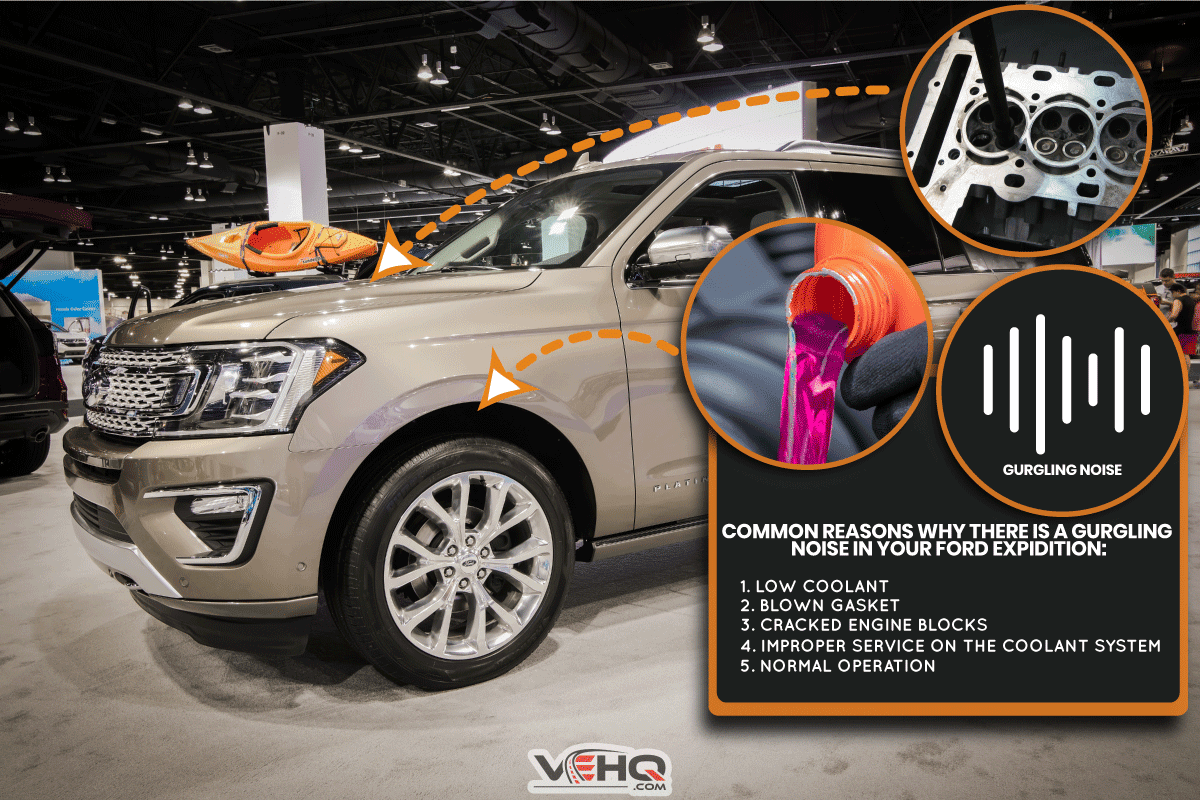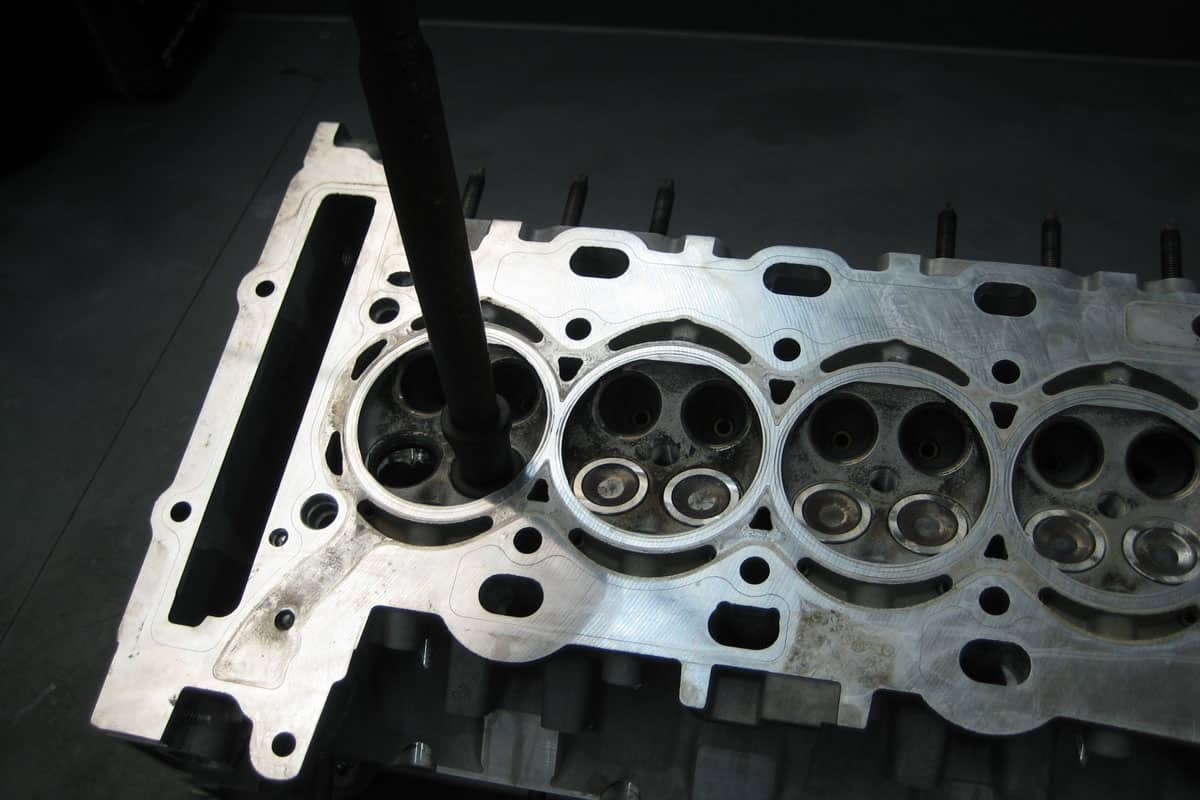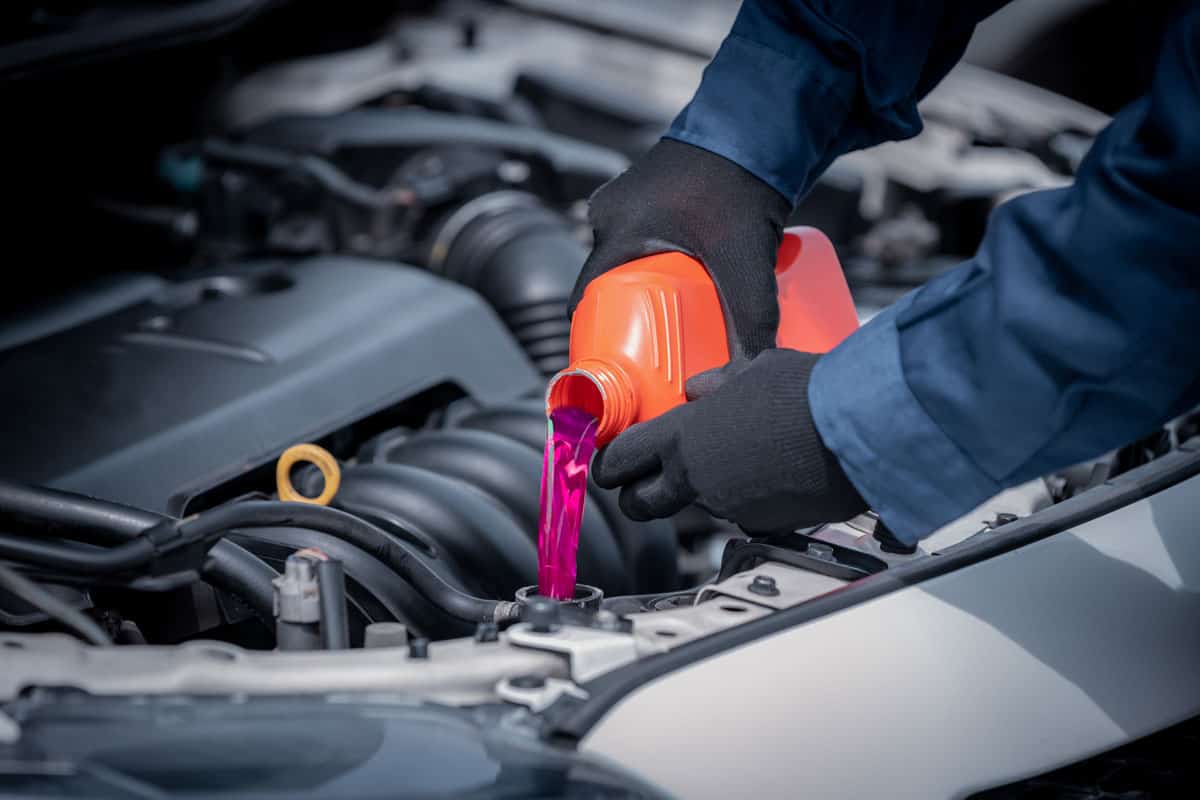As a driver, you want to have a smooth and enjoyable ride. But that can be interrupted when you suddenly hear a gurgling noise coming from your car. It can happen to any vehicle, including a Ford Expedition. Which part of your car is producing this noise, and what can you do about it? We researched to find out the source of the noise and the repairs needed to stop it.
The following are common reasons a gurgling noise will come from your Ford Expedition:
- Low coolant
- Blown gasket
- Cracked engine blocks
- Improper service on the coolant system
- Normal operation
Keep reading to know how to fix this problem and where the gurgling noise might be coming from. Included are tips for maintaining your car that can prevent the gurgling sounds from occurring. Also, find out if it is expensive to fix this issue.

Why Your Ford Expedition Has A Gurgling Sound And What To Do About It
Typically, a gurgling noise is the sound of water or air moving around the cooling system in your car. This happens when air is trapped in the cooling system. The bubbles move together with the coolant releasing a gurgling sound.
The following are reasons this can happen:

1. Low Coolant
When the level of coolant is low, the space left is filled with air. As a result, air pockets are created inside the cooling system causing the gurgling sound you hear.
What causes the coolant levels to go low? Let’s find out why this occurs.
Hole In The Radiator
Most cars today have radiator cores made from aluminum. This is a better material than copper, found in older cars.
Because of the vibrations, expansion, and corrosion these metals go through, the radiator eventually degrades, creating cracks through which coolant can leak.
The rubber hoses that connect the plastic tanks to the radiator wear out with time, causing them to dry and crack. The tanks welded to the radiation can also crack at the connections, even though they are metal.
Consequently, the coolant will leak from these connections. To stop the coolant from escaping, you need to seal these holes.
Loose Radiator Cap
The radiator cap closes the radiator tightly to maintain the cooling system at the right pressure. The cap’s seal may start to wear and tear, or the spring might become loose, allowing coolant to escape.
Have a look at this radiator cap on Amazon suitable for a Ford Expedition.
Cracked Head Gasket
You will find the head gasket in between the engine block and the head cylinder. It plays a major role in preventing the coolant from leaking into other parts of your car. When this gasket cracks, it is said to have ‘blown.’
Check out this head gasket sealer on Amazon.
If the cracks are minor, you can easily fix this by using a sealant like the one shown above. But if the cracks are extensive, the gaskets will need replacing.
Also, have it replaced regularly when its life span is almost over. The head gasket in a Ford Expedition can last at least 100,000 miles, and this should be the time to replace it.
Failed Water Pump
Find this water pump on Amazon for use in your Ford Expedition.
The water pump in your car is responsible for ensuring the coolant is constantly moving in the cooling system. This pump connects to the lower hose of the radiator.
It is normally located on the lower side of the engine, next to the drive belts. This connection can corrode or become loose, causing the coolant to leak.
The pump itself may get damaged, preventing the coolant from moving within the coolant system. As a result the engine can overheat.
Replacing a water pump is the solution, which can be complicated. You should have a professional do it for you.
Faulty Expansion Tank
That plastic container you see beside the engine in your Ford Expedition is the expansion tank, though some tanks are metal.
The connections to this tank can wear out and crack, and the tanks themselves can crack, causing the coolant to leak.
2. Blown Gasket
Find this head gasket kit for your Ford Expedition on Amazon.
As earlier mentioned, a blown gasket means it has cracked. Due to this, exhaust gases find their way into the cooling system, and ends up moving together with the coolant, to produce a gurgling sound.
You can seal the cracks using a sealant. If the damage is substantial, have a professional replace it, as the job can be demanding.
3. Cracked Engine Block
Engines are designed to withstand stress while driving. However, with time, cracks can develop at the bottom of the engine block.
Just like the head gaskets, a cracked block can allow combustion gases to enter the cooling system. As a result, bubbles form in the coolant just before it begins to boil.
These cracks are usually caused by the engine overheating. When the engine becomes too hot, cracks start to form due to thermal stress.
The block can also crack due to freezing temperatures. This occurs if there’s too much water in the cooling system instead of antifreeze. So when this water freezes, it expands causing the block to crack.
To fix this problem, your mechanic may recommend the replacement of the engine block or, in some cases, the entire engine. However, you can have your engine block repaired if the problem is not that that serious.

4. Improper Service On The Coolant System
Air can get trapped in your cooling system if the coolant does not bleed out properly when the coolant is changed.
There are several methods for bleeding the air out of your Ford Expedition. One of them is by elevating the radiator so that it is higher than the coolant system. By doing this, you expel the air pockets into the atmosphere.
Another method is to remove the radiator cap and start the engine. Allow it to run for around 15 minutes so that it can generate enough heat to expel the air. Your vehicle may have a bleeder valve in the radiator that bleeds off the air.
When any of these methods are not done properly, all of the air will not come out.
5. Normal Operation
Sometimes the gurgling noise is because of the expansion tank in the coolant system. Most vehicles today are fitted with an expansion tank next to the radiator.
When the coolant heats and expands, it may overflow, with the excess spilling into the expansion tank. It moves back into the radiator when it cools. This action is what produces a gurgling or bubbling sound, which is perfectly normal.
How To Prevent Problems That Produce Gurgling Noises
As seen above, gurgling sounds are produced because one or more parts of the cooling system are faulty or not functioning well. But if you maintain it in good condition, you can prevent these problems from happening in the first place.
As the old saying goes, a stitch in time saves nine. If you can detect problems early, you will prevent more complicated problems from arising and significantly reduce your repair costs.
The following are some tips to help you do this successfully:
Monitor Your Radiator
The radiator is part of the cooling system of your car. It maintains the temperature of the engine at the required levels.
If it malfunctions, your engine may overheat, which can lead to the engine breaking down. So if you notice that your car is overheating, you should immediately call a mechanic.
Keep checking for any signs of leakage from the radiator. Also, have your radiator cleaned several times a year to keep it running efficiently.
Check Cooling System Regularly

Ensure there is adequate coolant in the tank. This is because the coolant is responsible for dissipating heat, thus preventing the engine from overheating.
Also, don't ignore the low coolant warning light when it appears on your dashboard.
Cost Of Repairs To Stop Gurgling Noise

As soon as you hear gurgling sounds coming from your car, take it to a mechanic. With their expertise, they can diagnose the problem that's producing these sounds.
To diagnose if coolant is leaking from your Ford Expedition, it will cost you between $44 and $56.
If you need a new head gasket, you will spend between $892 and $900. The cost of labor to remove the faulty gasket and install a new one ranges from $1,466 and $1,849.
If the engine block is cracked, as mentioned earlier, the solution is to replace the block or the whole engine. Generally, for most cars, to replace the engine block or or rebuild it costs between $3,000 and $5,000.
New engines cost around $5,500 for a V6 or $7,000 for a V8. Most Ford Expedition vehicles have a V6 engine. However, these prices can increase due to factors like the age of the car, miles driven, and shipping costs.
If you prefer a used one, you will spend as little as $400 to $700. The cost of replacing an engine ranges between $1,000 and $1,800.
In Closing

A gurgling noise in your Ford Expedition mainly has to do with fluids. That is why you will hear the sounds coming from the cooling system of the car.
The noise is a warning that something is wrong and that you should have your car checked by a professional. There are various reasons your car may produce this sound. We have tackled the most common ones and their solutions.
You can prevent these sounds from happening by taking good care of your coolant system. You can also prevent a problem that has already begun from getting worse.
Check out some of our previous posts below:




